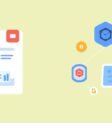
Artificial intelligence continues to redefine how we approach digital content, elevating productivity and creativity through the use of AI agents for content creation. This article explores what makes AI agents unique, their many advantages, practical use cases in modern workflows, and how to adopt these powerful tools. We’ll also look ahead to the future of AI-driven content to prepare you for the next wave of innovation.
How AI Agents Are Transforming Content Creation
AI agents are fundamentally changing the content creation landscape with a level of speed and sophistication that was unimaginable only a few years ago. Fueled by advanced natural language processing and machine learning, modern AI agents can research topics, draft long-form articles, edit copy, and even optimize for SEO—all without constant human supervision. This technological revolution means businesses and solo creators alike can produce high-quality materials faster and on a greater scale.
By automating laborious editorial tasks and streamlining workflows, AI-driven tools are empowering organizations to stay competitive in crowded markets. They analyze audience data, personalize strategies, and ensure each piece maintains a consistent voice. As content demands surge, adopting AI agents allows creators to boost productivity and focus on higher-level strategy and creativity. Learn more about the productivity impact of AI on content teams in this case study on doubling productivity with TheAgentBot.
Defining AI Agents: More Than Traditional Automation
So, what are AI agents, and how do they differ from traditional automated tools? AI agents are sophisticated software programs capable of carrying out tasks autonomously, making decisions, and learning from data. Unlike simple automation—which follows rigid, pre-scripted instructions—AI agents adapt to context, interpret unstructured data, and adjust strategies on the fly based on shifting requirements.
Key features include advanced language understanding, pattern recognition, and seamless interaction with humans or other digital systems. For content creators, this means relying on AI to generate original copy, summarize complex topics, optimize for different media, and continually refine output with minimal manual oversight. The major distinction is flexibility; AI agents bring intelligence and adaptability, allowing content teams to scale operations efficiently and maintain creative quality.
If you’re interested in building AI agents with no coding, explore the best no-code tools for building AI agents to expand your workflow possibilities.
Business Advantages of AI Agents for Content Creation
Adopting AI agents for content creation offers a multitude of benefits for businesses and independent creators:
- Efficiency and Productivity: Automate drafting, editing, optimization, and even publication, freeing up valuable time for strategy and innovation.
- Quality and Consistency: Enforce style guides, maintain tone, and minimize human error for polished, brand-consistent output.
- Data-Driven Insights: AI agents can quickly sift through massive data sets, discovering trends, emerging topics, and gaps in competitor content to inform strategy.
- Scalability: As demand grows, AI agents seamlessly help scale operations, producing more content without a drop in standards.
- Audience Personalization: Tailor messaging for specific platforms or demographics, maximizing relevance and engagement.
With these advantages, organizations achieve streamlined workflows and high-impact messaging. For more specific use cases, visit our guide on top use cases for TheAgentBot in 2025.
Use Cases: AI Agents in Blog Writing, Social Media, SEO, and More
AI agents now underpin several cornerstone strategies in digital content:
Blogging
AI agents accelerate the editorial process by auto-generating drafts, recommending topics, and optimizing sentences for readability and SEO. Human effort is reserved for injecting unique insights, personal stories, and expert opinions. For newcomers, check out the beginner’s guide to using TheAgentBot for blog management.
Social Media Management
These agents schedule posts, monitor metrics, and recommend shareable content, ensuring that messaging is relevant and timely. They can even respond to comments or flag trending discussions, letting you react instantly to audience changes.
SEO Optimization
From keyword research to meta tag creation and content audits, AI-driven solutions vastly simplify technical SEO. For deeper insights into automation, visit our post on AI agents for SEO and keyword research.
Email, Video, and Content Repurposing
Modern AI tools draft marketing emails, write video scripts, translate text into multiple languages, and adapt content formats for broad reach. This means one piece of content can easily become a blog, a newsletter, a social post, and more—all managed by a unified AI system.
How to Integrate AI Agents into Your Content Workflow
Getting started with AI agents for content creation is easier than ever, but success requires a strategic approach:
- Identify bottlenecks: Pinpoint tasks that slow your content production or leave room for improvement, such as idea generation or editing.
- Research solutions: Compare AI agent platforms based on features, pricing, integration options, and customer support. Many reputable tools offer free trials—be sure to test before committing.
- Check compatibility: Ensure your chosen AI agent seamlessly connects with your content management system (CMS) or workflow platforms. For integration tips, see our article on AI agent integrations.
- Start small: Run a pilot project to test results and collect team feedback before a full-scale rollout.
- Scale and optimize: As the tool proves its value, expand its use and refine settings for your unique workflow. Document learnings to ease future updates and training.
Regularly evaluate new features and stay updated on advancements to ensure your content operation continues to benefit from cutting-edge AI capabilities.
The Future of AI Agents in Content Creation
Looking ahead, the impact of AI agents on content creation will only intensify. Major trends include:
- Hyper-advanced natural language generation: AI will soon write with nuance and voice indistinguishable from expert humans.
- Real-time, data-driven content: Agents will surface and respond to trends instantly, providing up-to-date articles and social posts in real time.
- Collaborative AI: New tools will act as intelligent creative partners, suggesting research, generating content briefs, and offering optimization advice on demand.
- Personalization at scale: AI will tailor content for individuals or segments across multiple touchpoints, maximizing engagement and ROI.
- Multimedia Content Generation: Expect AI-driven creation of video, audio, and interactive media, broadening your brand’s reach and storytelling capacity.
To prepare for these shifts, content teams should continue learning about AI, investing in forward-looking platforms, and strengthening their uniquely human skills—strategy, creativity, and ethical judgment. For more detailed guidance, refer to top features of leading AI agents you shouldn’t miss.
Conclusion
AI agents for content creation are more than just a technological trend—they represent a fundamental shift in how creators and organizations operate. By automating routine work, delivering data-driven insights, and empowering more personalized and engaging content, AI agents allow human teams to focus on innovation and storytelling. As adoption grows and capabilities expand, those who embrace these tools today will shape the future of digital content tomorrow.
For a deeper dive into specific AI content solutions and best practices, read best use cases for TheAgentBot in 2025 or explore our step-by-step guide to building multi-task AI agents.






